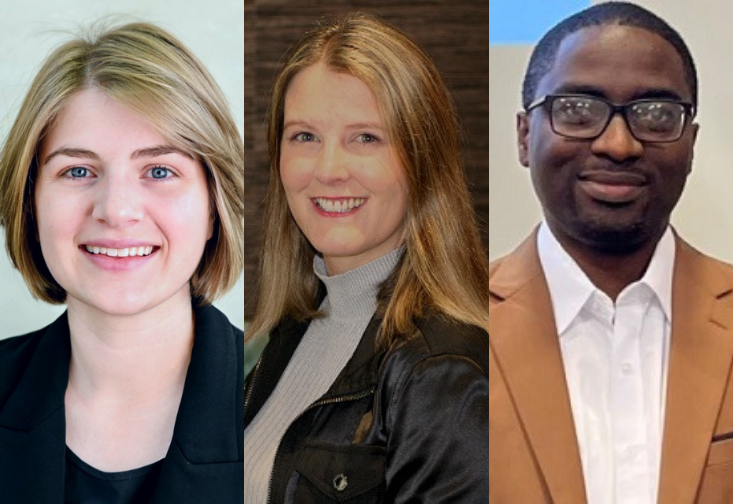Three assistant professors have been awarded the CBCS Internal Grant for the fall 2023 semester. Nik Lampe, PhD, is a faculty member in the Department of Mental Health Law and Policy, and Michelle Kapolowicz, PhD, and Gerald Imaezue, PhD, represent the Department of Communication Sciences and Disorders.
Lampe's project is titled "Developing a culturally responsive depression intervention for sexual and gender minority older adults living with mild cognitive impairment." Their preliminary study will investigate barriers and facilitators of participating in a behavioral activation (BA) intervention for treating depression in sexual and gender minority older adults with mild cognitive impairment (MCI). I will also adapt and revise simplified BA manual content and procedures for treating depression in sexual and gender minority older adults with MCI. Findings will inform an NIH K01 grant scaling up the generation of a culturally informed BA intervention for treating depression in older adults with MCI.
Kapolowicz's project is titled "Toward an objective diagnostic measure and candidate treatment for tinnitus." Her proposed study will evaluate whether young normal hearing adults with tinnitus exhibit decreased synchronous neural responses to speech relative to those without tinnitus, providing evidence of abnormal auditory gating processes in those with tinnitus. This study will also demonstrate whether a treatment that increases sensory inhibition can mitigate both asynchronous neural responses to speech and the self-reported tinnitus percept. The proposed study will provide pilot data that will serve to improve an R21 Early Career Research award for its second submission.
Imaezue's project is titled "Spontaneous Speech Production with Recursive Self-feedback in Patients with Chronic Aphasia." His study focuses on recursive self-feedback, an innovative approach to improve persons with aphasia speech production through self-feedback mechanisms alone. Initial research shows promise in the person's production of scripted monologues using recursive self-feedback. Imaezue and his team aim to determine if persons with aphasia can leverage these mechanisms for spontaneous speech production, including complex procedural and expository narratives. With two primary objectives, his study validates preliminary findings in a diverse sample of 20 people living with aphasia across various narrative tasks and informs an R01 application on future optimization efforts.
